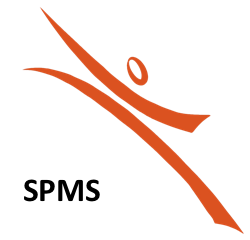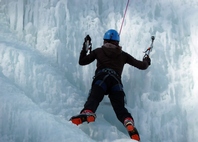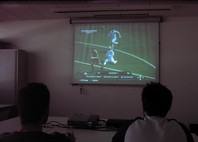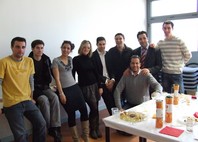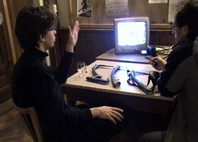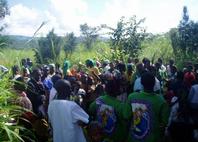NICOLAS Michel
 |
Michel NICOLAS |
| Maître de conférences Habilité à Diriger des Recherches |
Doctorat : STAPS / Psychologie
Psychologue certifié EUROPSY
Thématiques : Mes axes de recherche portent principalement sur l’analyse des processus d’adaptation psychologique dans le domaine des situations contraignantes et extrêmes (sport de haut niveau ; haute altitude terrestre; stations polaires, ICEs (environnements isolés et confinés), situation spatiale).
En tant que psychologue praticien, j’interviens dans la préparation psychologique des sujets soumis à ces situations contraignantes.
Mots clefs : Facteurs psychologiques et psychosociaux lies à l'ajustement en situations extrêmes : Stress, émotions, stratégies de coping et mécanismes de défense, récupération, buts motivationnels ; relations interpersonnelles (relation entraineur / entrainé...), leadership, cohésion.
My research topics relate mainly to the analysis of the psychological adjustment process in the field of stressful and extreme situations (high level sport; high terrestrial altitude; polar stations, ICEs (Isolated and Confined Environment), space situations).
As a practicing psychologist, I intervene in the psychological preparation of the participants subjected to these stressful and extreme situations.
Keywords : Psychological and psychosocial factors linked to adjustment in extreme situations : Stress, emotions, coping strategies and defence mechanisms, recovery, goal achievement ; interpersonal relationships (coach-athlete relationship...), leadership, cohesion.
Cette adresse e-mail est protégée contre les robots spammeurs. Vous devez activer le JavaScript pour la visualiser. / 03-80-39-90-11
https://www.researchgate.net/profile/Michel_Nicolas2
Articles publiés dans des revues scientifiques indexées
Martinent, G., Nicolas, M. (2016). Athletes' affective profiles within competition situations: a two-wave study. Sport, Exercise, and Performance Psychology, accepted.
Nicolas, M., Bishop, S., Weiss, K., & Gaudino, M. (2016). Social and occupational dimensions during a 12-month wintering in Concordia: Intercultural and positions influences. Aerospace Medicine and Human Performance, 87(9), 781-790.
Nicolas, M., Drapeau, M., & Martinent, G. (2016). A reciprocal effects model of the temporal ordering of coping and defenses. Stress and Health, accepted.
Vacher P., Nicolas M., Mourot L. (2016). Monitoring training response with heart rate variability in elite adolescent athletes: is there a difference between judoka and swimmers? Archives of Budo, 12,35-42.
Nicolas M., Vacher P., Martinent G., Mourot L. (2016). Monitoring stress and recovery states: Structural and external stages of the short version of the RESTQ Sport in elite swimmers before championships. Journal of Sport and Health Science. http://dx.doi.org/10.1016/j.jshs.2016.03.007
Martinent, G. & Nicolas, M. (2016). Temporal ordering of affective states and coping within a naturalistic achievement-related demanding situation. International Journal of Stress Management.
Buqing Y., Nichiporuk, I., Nicolas, M., Schneider, S., Feuerecker, M., Vassilieva, G. Thieme, D., Schelling, G. & Choukèr, A. (2016). Reductions in circulating endocannabinoid 2-arachidonoylglycerol levels in healthy human subjects exposed to chronic stressors. Progress in Neuro-Psychopharmacology and Biological Psychiatry.
Campo, M., Louvet, B., Dosseville, F., Ferrand, F., Hagger, M., Martinent, G., Nicolas, M., Réguer, D., Sanchez, X., (2016). Promotion de l’activité physique chez les seniors – revue systématique des programmes d’intervention centrés sur les barrières affectives. STAPS, 110, 115-129.
Nicolas, M., Suedfeld, P., Weiss, K., & Gaudino, M. (2015). Affective, social and cognitive outcomes during a one year wintering in Concordia. Environment & Behavior, 1-19. DOI: 10.1177/0013916515583551
Martinent, G., Ledos, S. Ferrand, C., & Campo, M. & Nicolas, M. (2015). Athletes’ Regulation of Emotions Experienced during Competition: A Naturalistic Video-Assisted Study. Sport, Exercise, and Performance Psychology, accepted.
Nicolas, M., Martinent, G., & Campo, M. (2014). Evaluation of the Psychometric Properties of a Modified Positive and Negative Affect Schedule Including a Direction Scale (PANAS-D) among French Athletes. Psychology of Sport & Exercise,15, 227-237.
Nicolas, M. & Gushin, V. (2014). Stress and Recovery Responses During a 105-day Ground-based Space Simulation. Stress and Health, sous presse.
Martinent, G., Nicolas, M., Gaudreau, P., & Campo, M. (2013). A cluster analysis of affective states before and during competition, Journal of Sport & Exercise Psychology, 35, 600-611.
Nicolas, M., Sandal, G. M., Weiss, K., & Yusupova, A. (2013). Mars-105 Study: Time-courses an relationships between coping, defense mechanisms, emotions and depression. Journal of Environmental Psychology, 35, 52-58.
Nicolas, M., Banizette, M. & Millet, G.Y. (2011). Stress and recovery states after a 24h ultra-marathon race: a one-month follow-up study. Psychology of Sport & Exercise, 12(4), 368-374.
Nicolas, M., Gaudreau, P. & Franche, V. (2011). Perception of coaching behaviors, coping, and goal attainment in a sport competition. Journal of Sport & Exercise Psychology, 33(3), 460-468.
Nicolas, M. (2009). Personality, social support and affective states during simulated microgravity in healthy women. Journal of Advances in Space Research, 44, 1470-1478.
Laurin, R. & Nicolas, M. (2009). Conscientiousness, soccer and school self-determination and satisfaction in soccer academies: A longitudinal perspective. International Journal of Sport and Exercise Psychology, 7, 169-184.
Nicolas, M, & Weiss, K. (2009). Stress and recovery assessment during simulated microgravity: Effects of exercise during a long-term head down tilt bed rest in women. Journal of Environmental Psychology, 29(4), 522-528.
Laurin, R., Lacassagne M. F., & Nicolas M., (2009). La catégorisation Blancs/Noirs dans les centres de formations de football: Effet sur la satisfaction et la performance. Bulletin de Psychologie, 62(4), 343-363.
Nicolas, M, & Jebrane, A. (2008). Consistency of coping strategies and defense mechanisms during training sessions and sport competitions. International Journal of Sport Psychology, 39, 1-20.
Laurin, R., Nicolas, M., & Lavallèe, D. (2008). Effects of personal goal management intervention on positive and negative moods of soccer training center trainees. Journal of Clinical Sport Psychology, 2, 57-70.
Nicolas, M, & Jebrane, A. (2008). Relationships between Coping Strategies and Defense Mechanisms in sport performance. Psychological Reports, 103, 735-744.
Laurin, R., Nicolas, M., & Lacassagne, M. F. (2008). Effects of a personal goal management program on the scholastic and soccer self-determination motivation and satisfaction of new trainees at a football training center. European Sport Management Quarterly, 8, 83-99.
Laurin, R., Nicolas, M., Labruère-Chazal, C., & Lacassagne, M. F. (2008). A self-report of adjustment of teenagers at soccer training centers: The Soccer Trainee Adjustment Scale. Perceptual and Motor Skills, 107, 189-196.
Laurin, R., Nicolas, M., & Labruère-Chazal, C. (2008). Effets de l’accompagnement d’un projet personnel sur l’estime de soi de stagiaires d’un centre de formation de football. Sciences et Motricité, 65(3), 107-121.
Nicolas, M., & Jean, J. (2006). Le passage de haies: De la réalité sportive en heptathlon à la réalité subjective d’Emma. Pratiques Psychologiques, 13(1), 65-79.
Nicolas, M., Thullier-Lestienne, F., Bouquet, C., Gardette, B., Gortan, Richalet, J. P., & Abraini, J. H. (2000). A mood changes, personality and altitude symptomatology study during a 31-day period of hypoxia in a hypobaric chamber (experiment "Everest- Comex 1997"). Psychological Reports, 86, 119-126.
Nicolas, M., Thullier-Lestienne, F., Bouquet, C., Gardette, B., Gortan, C., Joulia, F., Bonnon, M., Richalet, J. P., Therme, P., & Abraini, J. H. (1999). An anxiety, personality and altitude symptomatology study in individuals participating in a 31-day period of hypoxia in a hypobaric chamber (experiment "Everest-Comex 1997"). Journal of Environmental Psychology, 19, 407-414.
Abraini, J. H., Bouquet, C., Joulia, F., Nicolas, M., & Kriem, B. (1998). Cognitive performance during a simulated climb of Mount Everest: Implications for brain function and central adaptative processes under chronic hypoxic stress. European Journal of Physiology, 436, 553-559.
Articles publiés dans des revues non indéxées
Nicolas, M. (2015). EFPA (European Federation of Psychology Associations) Task Force Sport Psychology. Bulletin d’information professionnelle de la Fédération Française des Psychologues et de la Psychologie, Fédérer, 78, 18-20.
Weiss, K. & Nicolas, M. (2010). Aspects psycho-environnementaux de l’adaptation lors de simulations spatiales. Revue COSPAR.
Nicolas, M. (2009). L’ANaPS : l’Association Nationale des Psychologues du Sport. Bulletin d’information professionnelle de la Fédération Française des Psychologues et de la Psychologie, Fédérer, 47, 11.
Nicolas, M. & Noger, K. (2007). Performance et bien-être : L’apport de la psychologie du sport appliquée. La documentation française, Ministère de la défense. Questions de défense : agir et décider en situation d’exception, Inflexions, 3, 183-198.
Nicolas, M. (2006). Le psychologue dans le champ du sport. Bulletin d’information professionnelle de la Fédération Française des Psychologues et de la Psychologie, Fédérer,18, 7.
Nicolas, M., Weiss, K., & Heas, S. (2006). Le leadership dans les situations extrêmes. La documentation française, Ministère de la défense, Inflexions, 3, 183-198.
Nicolas, M. (2004). L'intégration d'une technique de préparation mentale dans un dispositif de préparation psychologique. Revue de psychologie du sport, ADPS, Second souffle, 5, 67-80.
Nicolas, M., & Correa, T. (2003). La préparation psychologique au pôle France décathlon. Revue de la Fédération Française d’Athlétisme, AEFA, 169, 10-11.
Nicolas, M. (2003). L’entraînement mental dans le sport de haut niveau. Revue de psychologie du sport, ADPS, Second souffle, 4, 18-29.
Nicolas M. (2000). Évolution d’un concept polysémique : le stress. Revue de psychologie du sport, ADPS, Second souffle, 2, 15-22.
Nicolas M. (2000). Manifestations de stress dans la pratique sportive de haut niveau. Revue de psychologie du sport, ADPS, Second souffle, 2, 23-30.
Coordination et direction d’ouvrages
Nicolas, M. & Noger, K. (2010). Actualité des pratiques en psychologie du sport. Paris, Jouve S.A., France.
Association des Psychologues du Sport, APSYS (2001). Statuts et fonctions du psychologue spécialisé dans les activités physiques et sportives. Grasse-Le-Plan : Sport, Sciences, Diffusion.N
Chapitre d'ouvrages
Nicolas, M., Gaudino, M., Weiss, K., & Martinent, G. (2016). Les émotions en situations extrêmes. In M. Campo and B. Louvet (Ed.), Les émotions en sport et en EPS : Enseignement, performance et santé (pp. 307-320). Bruxelles : Editions De Boeck.
Martinent, G., Ledos, S., & Nicolas, M. (2016). Mesures des émotions en sport : Les approches quantitatives, qualitatives et comportementales. In M. Campo and B. Louvet (Ed.), Les émotions en sport et en EPS : Enseignement, performance et santé (pp. 211-227). Bruxelles : Editions De Boeck.
Martinent, G. , Ledos, S., & Nicolas, M. (2014). Méthodologies à la première et à la troisième personne : Quelles articulations possible s dans le champ de la psychologie des émotions en contexte compétitif. In M. Quidu (Ed.), Les sciences du sport en mouvement : tome II, p. 291-306 . Paris : L’Harmattan.
Nicolas M. (2001). Le psychologue dans le sport de haut niveau : fonctions, statuts et dispositifs. In Statuts et fonctions du psychologue dans les activités physiques et sportives (pp. 39-54). Sport Sciences Diffusion.
Nicolas, M., & Jean, J. (2010). La préparation psychologique a la performance : Approche éclectique. In Actualité des pratiques en psychologie du sport (pp. 45–62). Paris, Jouve S.A., France.
Communications internationales avec actes
Nicolas, M., Gaudino, M. & Vacher, P. (2016). Psychological Adaptation Process in sport and extreme situations. Invited Speaker at Psychology in sport and extreme situations conferences. 23rd May 2016, Beihang university, Beijing, China.
Nicolas, M. (2016). Stress, recovery, emotions, & adaptation in space analog. Invited Speaker at CELSS Controled Ecological Life Support System experimentation. 12th May 2016, Aerospatial Space center, Shenzhen, China.
Nicolas, M. (2016). The Europsy certification in sport: what is the current situation? Invited Speaker at Seminar of the Cyprus Psychological Association “Sport Psychology in Cyprus and Europe: Challenges and Developments”. University of Cyprus, April 21st 2016.
Folgueira, A., Cuiuli, J. M., Crippa, V., Agostino, P., Plano, S., Zimmerman, A., Barbarito, M., Tuerlinckx, F., Van Den Bergh, O., Aubert, A., Goswami, N., Mulder, E., Nicolas, M., Simonelli, G., Lockley, S., Golombek, D., & Vigo, D. E. (2015). Actigraphic assessment of sleep-wake cycle during over-wintering at Belgrano II Argentine Antarctic station. XIII Latin American Symposium on Chronobiology (LASC). São Paulo, Brazil. 3rd-8th November, 2015.
Vacher, P., Mourot, L., Nicolas, M. (2015). Indicateurs des états psychophysiologiques chez des nageurs Elite en période d'affûtage. Congrès international de l'Association des Chercheurs en Activités Physiques et Sportives, 26-28 Octobre 2015, Nantes, France.
Gaudino, M., Martinent, G., Millet, G., Nicolas, M. (2015). Les réponses de stress consécutifs à l’accomplissement de l’Ultra-Trail du Mont-Blanc (UTMB): une analyse en clusters. Congrès international de l'Association des Chercheurs en Activités Physiques et Sportives, 26-28 Octobre 2015, Nantes, France.
Nicolas, M., Suedfeld, P., Weiss, K., & Gaudino, M. (2015). Affective, social and cognitive outcomes during a one year wintering in Concordia.14th European Congress of Psychology, Milan 7-10 July 2015.
Nicolas, M. (2015). The psychologist in the field of sport and extreme situations: Psychological Adaptation Process. Invited Speaker at Sport Psychology European Conference, October 31th 2015, Lisbon.
Nicolas M., Vacher P., Mourot L. & Martinent G. (2014). Psychological and physiological stress and recovery monitoring. icSPORTS 2014, Sports Medicine and Support Technology, Roma, 24-26 October, 2014.
Nicolas M., Martinent G., Gaudreau P., & Campo M. (2014). Intensity and directionality of affective states in sport competition: Why does it matter? The 7th ASPASP (Asian-South Pacific Association of Sport Psychology)International Congress, Tokyo, 7-10 August 2014.
Nicolas M., Sandal G., Weiss K., Yusupova A. and Gaudino M. (2014). Time-courses and relationships between coping, defense mechanisms, emotions and depression during a space analogue. Symposium Emotion, Stress and Coping in Sport and Extreme Situations. 5ème congrès international de la Société Française de Psychologie du Sport. Nice 12-14 Mai 2014.
Martinent G., Nicolas M., Gaudreau P. and Campo M. (2014). A cluster analysis of affective states before and during competition. Symposium Emotion, Stress and Coping in Sport and Extreme Situations. 5ème congrès international de la Société Française de Psychologie du Sport. Nice 12-14 Mai 2014.
Dirand E., Cousin V., Trousselard M., Nicolas M. and Ferrer M.-H. (2014). Effects of mental preparation (TOP) during an intense military training week. Symposium Emotion, Stress and Coping in Sport and Extreme Situations. 5ème congrès international de la Société Française de Psychologie du Sport. Nice 12-14 Mai 2014.
Nicolas, M. & Gaudreau P. (2013). Relationships between athlete’s self-perception of the coach-athlete relationship and coping strategies in individual sports. ISSP 13th World congress of sport psychology, Beijing, China, 22-26 July.
Nicolas, M. & Weiss, K. (2013). Effect of Exercise Countermeasures on depression in Women during 60-Day Head-Down Tilt Bed Rest. The 13th European congress of Psychology, Stockholm, Sweden, 9-12 July.
Weiss, K., Nicolas M. & Artyukhova, A. (2013). A system approach to environmental evaluation, psychological responses and adaptation strategies in confined and isolated groups in Mars 500 study. 64th International Astronautical Congress, Beijing, China, 23-27 September.
Nicolas, M. & Weiss, K. (2012). Time-courses and relationships between coping, defense mechanisms, emotions during the Mars 105 study. MARS-500 congress, Russian Federal Space Agency, Russian Academy of Sciences and State Scientific Center of the Russian Federation Institute of Biomedical Problems, Moscow, April 23-25.
Nicolas, M., Gaudreau, P. & Franche V. (2011). Perception des comportements de l’entraîneur, stratégies de coping, et atteinte de but en compétition sportive. 14ème congrès international de l'ACAPS, Rennes, 24-26 octobre.
Nicolas, M., Banizette, M. & Millet, G.Y. (2011). Stress and recovery states after a 24h ultra- marathon race. 13th international congress of the FEPSAC (Fédérations Européenne de Psychologie du Sport et des Activités Physiques). Madeira, Portugal, 12th - 17th July 2011.
Nicolas, M. (2011). Relations entre la relation entraîneur / entraîné et les stratégies de coping en sport individuel. Congrès international de la Société Française de Psychologie, Bordeaux, 7-8 avril 2011.
Nicolas, M. (2010). Social, occupational, environmental and psychological adaptation in ICE situations. Human Spaceflight and Exploration, Concordia Station, August 31st, 2010, ESA (European Space Agency)/ ESTEC, Noordwijk, the Netherlands.
Nicolas, M., Weiss, K. & Rosnet, E. (2009). Psychological investigations in analogue environments: the WISE 2005 study. Workshop on Human Behaviour and Performance in Analogue Environments and Simulations, ESTEC ESA, Noordwijk, the Netherlands, 7-8 December 2009.
Weiss, K. & Nicolas, M. (2009). Psycho-environmental aspects of human adaptation in space analogues: data from Concordia and bed rest studies. Workshop on Human Behaviour and Performance in Analogue Environments and Simulations, ESTEC ESA, Noordwijk, the Netherlands, 7-8 December 2009.
Nicolas, M. & Weiss, K. (2008). Stress and recovery assessment during simulated microgravity: Effects of exercise during a long-term head down tilt bed rest in women. 37th COSPAR Scientific Assembly 2008: Life Sciences as Related to Space, Psychological Issues Related to Long Duration Space Missions (F53). Montréal, Canada, July 13-20 2008.
Tribbia, J. & Nicolas M. (2008). Influence de la performance sur la relation dyadique entraîneur-entraîné en tennis. Colloque international : Le tennis dans la société de demain. Dijon 3-5 avril 2008.
Delcor, L., Jean, J. & Nicolas, M. (2007). Modélisation de la dynamique des images motrices. 12ème congrès international de l'ACAPS, université catholique de Leuwen, Belgique, 31 octobre-2 novembre 2007.
Nicolas, M. & Weiss, K. (2006). Adjustment to stressful situations: coping and defense mechanisms. International Association for People Environment Studies, IAPS, Bibliotheca Alexandrina, Alexandria, Egypt, 11-16 septembre 2006.
Jean, J., Delcor, L. & Nicolas, M. (2006). Motor images dynamics: an exploratory study. Third International Conference on Enactive Interfaces, Enactive 06, Montpellier, France, 20-21 novembre 2006.
Nicolas, M. & Jebrane, J. (2006). Influence des stratégies de coping et des mécanismes de défense sur la performance sportive. 4èmes Journées Internationales des Sciences du Sport. INSEP, Institut National des Sports, Paris, 28, 29 et 30 novembre 2006.
Principaux contrats de recherche
2017 Nicolas, M. (Porteur de projet), Vacher, P., Rosset, S. Contrat Soutien INSEP (Institut National du Sport, de l’Expertise et de la Performance) « Stratégies de Récupération et Tolérance aux Charges ». Montant total du financement : 16360 €
2016: Nicolas, M. (Porteur de projet). Contrat CNES (Centre National d’Etudes Spatiales), contrat DAR, “ Cardiospace in CELSS confinement, ICE situation for Mars mission, China Space Research Center”.
2016 : Campo, M., Nicolas, M, & Relave A. Projet « Régulation Emotionnelle Interpersonnelle ». Université de Bourgogne, BQR.
2013-2015 : Nicolas, M. (Porteur de projet). Laurent Mourot, Philippe Vacher, Guillaume Martinent. BQR PRES Bourgogne-Franche Comté. « Evaluation et prévention des risques psychosociaux et du stress liés au surentrainement et à l’épuisement en situation sportive ».
2013-2014 : Nicolas, M. (Porteur de projet). PARI Action 6, Projet intégré SHS 6 « Soins, bien être et systèmes de santé ». Programme 92-01. « Adaptation psychologique, sociale, environnementale et professionnelle en situation ICE. Identification, analyse, élaboration et validation d’outils de mesure de l’adaptation en situation ICE».
2011-2015 : Nicolas, M. (Principal Investigator), Weiss, K. (Pr. Université de Nîmes), & Gushin, V. (M.D., Ph.D., Institute for Biomedical Problems Russian Academy of Sciences): “Social, occupational, environmental and psychological adaptation in ICE situations: identification, analysis, elaboration and validation of tools measuring adaptation in ICE situations”. Programmes de recherche dans les régions polaires 2011, Institut Polaire Français Paul-Emile Victor (IPEV).
Laboratoires ou partenaires associés au projet : Laboratoire SPMS Université de Bourgogne, Institute for Biomedical Problems Russian Academy of Sciences, Laboratoire de psychologie Sociale Université de Provence.
2010-2014 : Nicolas, M. (Principal Investigator), Weiss, K. (Professeur université de Nîmes), & Rosnet, E. (Responsable du service recherche à l’INSEP): “The ICE-Q and meaning of place questionnaire.” Concordia Antarctic Station program 2010, ESA (European Spatial Agency).
Laboratoires ou partenaires associés au projet : Laboratoire SPMS Université de Bourgogne, Institut National Des Sports et de l’Education Physique, Laboratoire de psychologie Sociale Université de Provence.
2009-2011: Weiss, K. & Nicolas, M. (Co-investigator), Johannes, B. (German Aerospace Center, DLR), Rosnet, E. (Responsable du service recherche à l’INSEP), Tafforin, C. (Ethospace – Research and Study Group in Human and Space), Sautkina, E. (Department of Social and Organizational Psychology, Lisbonne, Portugal).
“Adaptation, group structure and communications from complementary approaches of confined and isolated crews”. Mars 500 program, ESA (European Spatial Agency) and IBMP (Institute of Biomedical Problems of the Russian academy of sciences.
2005-2007: Weiss, K. & Nicolas, M. (co-ordinating investigator), AO-06-BR, life sciences research in space simulation, ESA (European Spatial Agency).
The WISE-2005 study (Women International Space Simulation for Exploration).
“Psychological Investigations of Adaptation and well-being during a long term bedrest.” Long-term Head-Down Tilt Bed Rest (LT-HDT-BR), ESA / CNES / NASA.
The WISE-2005 study was sponsored by the European Space Agency (ESA), the National Aeronautics and Space Administration of the USA (NASA), the Canadian Space Agency (CSA) and the French "Centre National d'Etudes Spatiales" (CNES) which promoted the study in accordance with French. The study was carried out by MEDES, the Institute for Space Physiology and Medicine in Toulouse, France.
